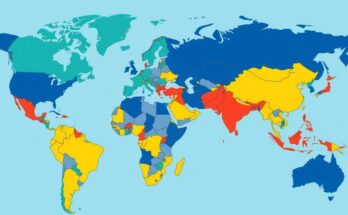Mauritius is conducting parliamentary elections where approximately one million voters will select 62 members of parliament. The election is heavily influenced by a cost-of-living crisis, with current Prime Minister Pravind Kumar Jugnauth’s party facing a wire-tapping scandal. Results are expected to reveal whether promises made by either party to address economic concerns will resonate with the electorate.
Mauritius is currently engaged in parliamentary elections amid significant public concern regarding a cost-of-living crisis. Approximately one million voters are expected to cast their ballots to elect 62 members to the National Assembly. The elections are overshadowed by a recent wire-tapping scandal, and despite the polls opening at 7 AM and closing at 6 PM local time, the political climate remains tense. Voter turnout is anticipated to be influenced heavily by pressing economic issues.
The parliamentary election in Mauritius represents the 12th event of its kind since the country’s independence from the United Kingdom in 1968. With a population of approximately 1.3 million, Mauritius has showcased a stable democracy and a growing economy primarily supported by sectors such as offshore finance, tourism, and textiles. However, many citizens have reported feeling disconnected from the projected economic growth, thereby elevating the cost-of-living crisis as a central theme of electoral discussions.
In conclusion, the parliamentary elections in Mauritius are being conducted under the heavy shadow of economic concerns and political scandal. With both ruling and opposition parties promising to address the pressing cost-of-living issues, the outcome of these elections may significantly impact policies and governance moving forward. Voter engagement will be crucial, as anticipated results set to be announced on Monday could reshape the political landscape of this prosperous island nation.
Original Source: www.aljazeera.com




